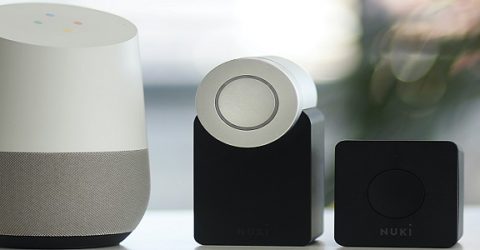Who’s afraid of the Internet of Things?
Research suggests many consumers don’t trust the 'IoT', but are there reasons to be fearful?

Until relatively recently, the Internet of Things (IoT) was being hailed as the next online revolution.
Technology publications ran endless articles telling us how hundreds of internet-connected devices would make our homes and offices ‘smart’.
Consumers were told all they needed was decent broadband and a willingness to try something new. And as it turns out, they were right.
The UK loves its connected smart home devices. Most households own at least one such gadget, and some are well-stocked with web-connected hardware.
Smart TVs are the most popular items, but smart speakers are rapidly catching up in popularity. Lighting/heating control and voice-activated kitchen appliances are also popular.
The IoT smart doorbell, which streams voice and video content no matter how far from home you may be, is also gaining ground, boosted by our newfound reliance on home deliveries.
But it’s not all good news for our connected futures.
A study by the University of Warwick of more than two thousand UK consumers revealed that while many households are connected to the IoT, plenty of us don’t trust smart home devices.
This has implications for smart home manufacturers and consumers alike.
GuideMust-have features for your next smart TV
Setting up a smart home can save householders hundreds of pounds a year. If they are too afraid of the devices to use them, they are missing out.
So, are British householders failing to take advantage if they avoid smart home gadgets, or are they being sensible?
Smarter than it looks?
The Internet of Things is a term used to describe the totality of devices connected to the internet, other than computers and phones.
This includes the industrial equipment used in manufacturing and engineering, as well as smart home devices that require a web connection.
For example, your smart TV connects to the internet via your home broadband. Smart kettles, fridges and light sensors do the same.
Some IoT devices can be used at least some of the time via mobile app.
MoreWhat is the ‘Splinternet of Things’?
The idea behind the smart home is that online gadgets make household tasks and administration easier and more efficient.
Smart energy meters are designed to help the UK become carbon neutral and save you the hassle of meter readings, while smart heating controls let you come home to a pre-warmed house.
But not everyone appreciates the benefits.
The University of Warwick study found fears of security breaches and of unauthorised data collection were major barriers to the adoption of smart home technologies among UK consumers.
This applied even to people who already owned web-enabled hardware.
What does this mean for smart home tech and the IoT?
Sales of IoT devices are strong, and research shows even people who distrust such gadgets sometimes buy them anyway, albeit in lower numbers.
There are indications that people who ‘only’ have one or two smart home devices, and worry about IoT privacy/security, tend not buy any more.
Also, these people are often older and less tech-savvy. In other words, they’re groups that arguably have the most to gain from the savings smart gadgets offer.
Both disadvantaged groups and IoT manufacturers stand to gain from greater uptake of smart home devices.
It therefore seems sensible for manufacturers to look carefully at their cybersecurity, make sure their devices are as safe as possible, and promote them on that basis.
Current smart device advertising focuses on the convenience and physical security provided by smart home gadgets.
It’s interesting that data protection and cybersecurity are rarely mentioned. This could be because firms don’t want to acknowledge these risks exist – though most consumers already know.
If manufacturers can prove they deserve consumers’ trust, and live up to their claims when it comes to privacy and security, people will be likely to buy more IoT devices.
In doing so, they’ll help to drive up cybersecurity standards in millions of homes.
If this process also increases consumer trust, drives sales and optimises household efficiency, everybody wins.






